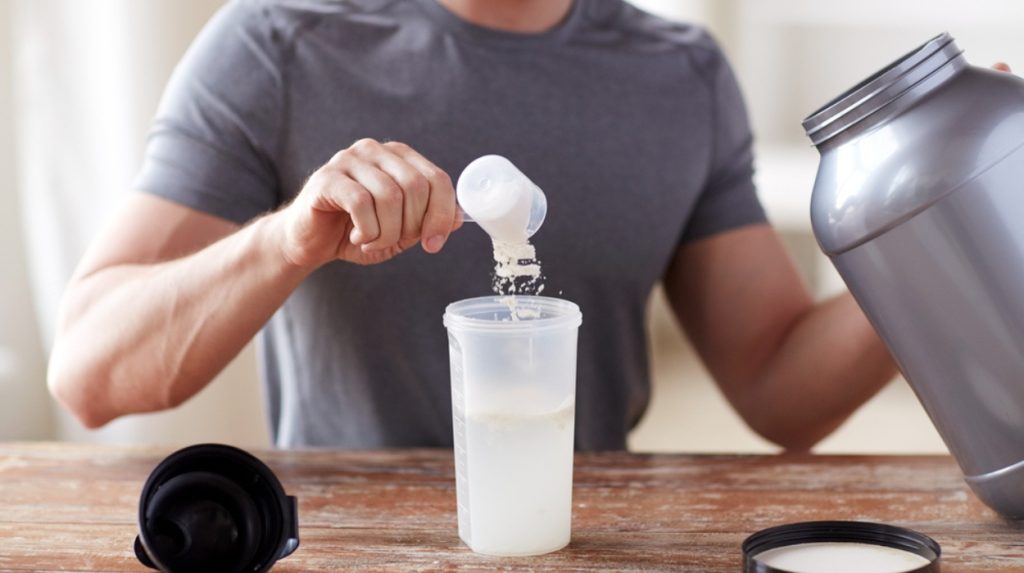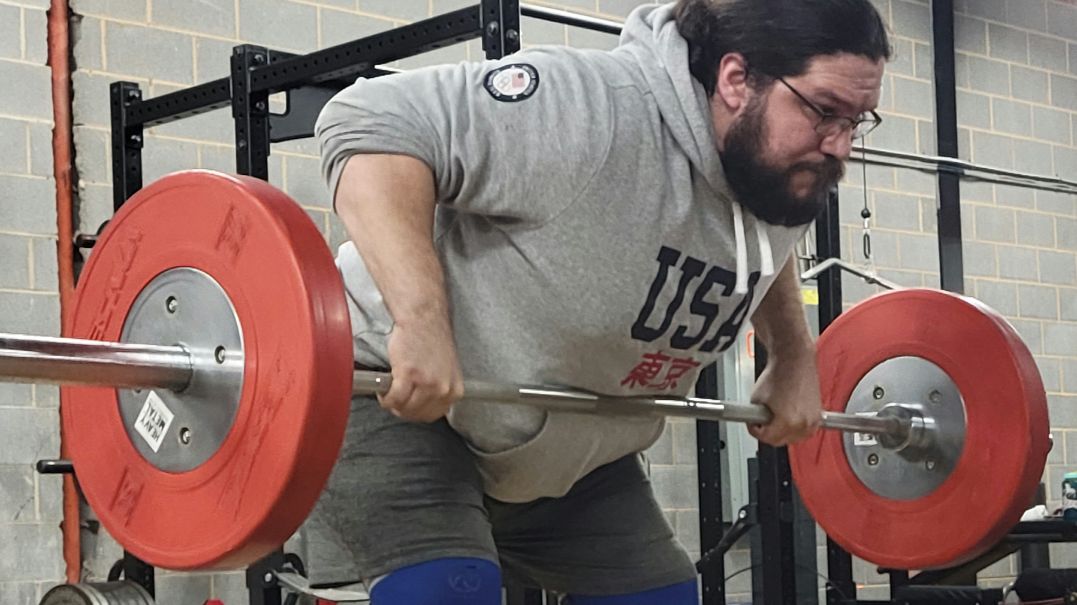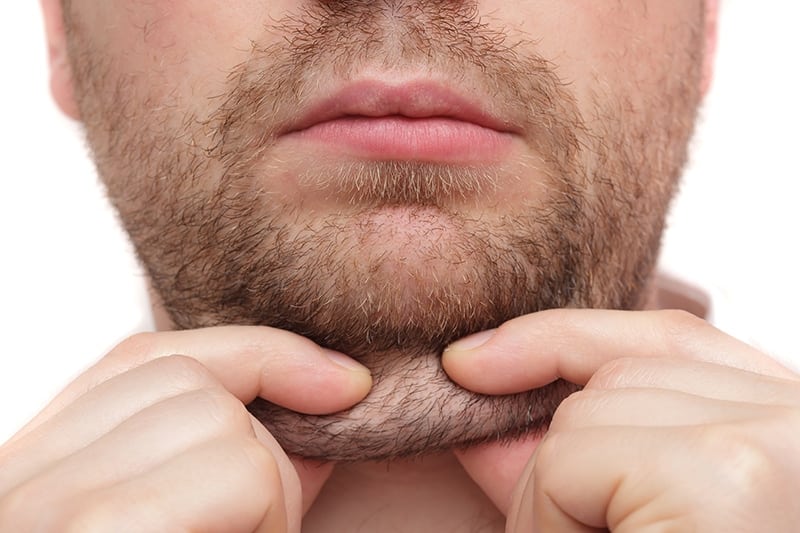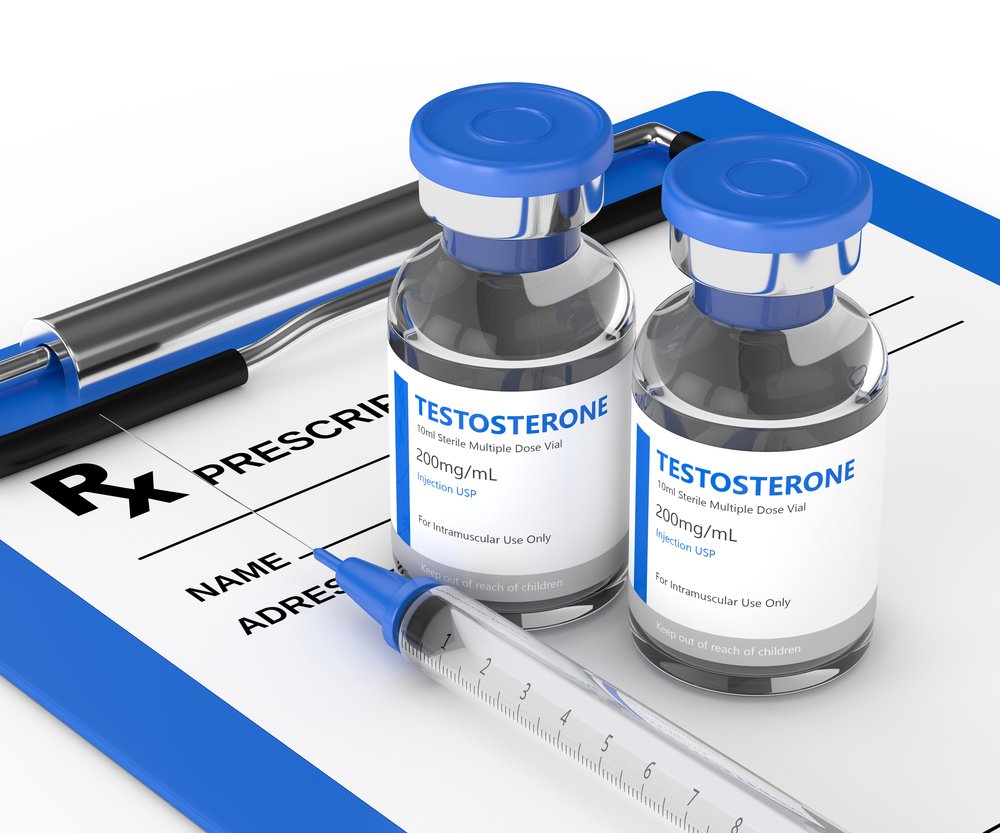No, creatine does not make you look fatter. Indeed, this compound has the potential to enhance athletic performance by supplying energy for brief bursts of intense physical activity.
Creatine is stored in muscles and aids in replenishing ATP (adenosine triphosphate), a key energy source for muscle contractions.
While creatine itself doesn’t cause fat gain, it may lead to an increase in water retention within the muscles.
Creatine is a natural thing in your body that helps make energy during short, intense exercises like lifting weights. People like using creatine supplements because they can make you stronger, increase muscle, and help you recover faster.
Some people think creatine makes you gain weight, but that’s not really true. It doesn’t make you gain fat. What happens is when you start taking creatine, it makes your muscles hold more water.
This isn’t the same as gaining fat – it’s just a temporary thing that actually helps your muscles stay hydrated and look fuller. After a while, your body gets used to it, and the water weight levels out.
So, don’t worry about creatine making you gain fat, it’s more about helping you get stronger and perform better in your workouts.
The Science Behind Creatine

Explanation of Creatine’s Role in Energy Production during Short Bursts of Physical Activity:
Creatine comes into play by aiding in the regeneration of ATP.
The process involves the conversion of creatine to phosphocreatine in the muscles. Phosphocreatine acts as a rapid reserve of high-energy phosphate bonds that can be readily used to regenerate ATP.
This is particularly beneficial during activities that involve short, intense bursts of effort, allowing the muscles to maintain energy levels and performance.
The chemical reaction is as follows: Creatine + ATP ⇌ Phosphocreatine + ADP.
By donating its phosphate group to ADP (adenosine diphosphate), creatine helps reform ATP, which can then be used again for quick bursts of energy.
This process is crucial for activities where the immediate availability of energy is essential but can only be sustained for a short duration.
How Creatine is Stored in Muscles and its Impact on Performance:
Phosphocreatine is the form in which creatine is stored in the muscles. Approximately 95% of the body’s creatine is found in skeletal muscles. The creatine storage in muscles contributes to their ability to generate energy rapidly during short and intense bouts of physical activity.
When you supplement with creatine through dietary sources or as a supplement, you increase the concentration of creatine within the muscles.
This elevated creatine level enhances the muscles’ capacity to produce ATP, leading to improved performance during activities requiring short bursts of power.
The increased availability of phosphocreatine helps in buffering the depletion of ATP during high-intensity efforts, delaying the onset of muscle fatigue and improving overall exercise performance.
If you’re into sports or activities with quick, powerful moves, using creatine supplements can help boost your performance.
In summary, creatine plays a vital role in providing rapid energy for short-term, high-intensity activities by aiding in the regeneration of ATP.
The storage of creatine in muscles as phosphocreatine enhances the muscles’ ability to sustain energy production during brief, intense efforts, ultimately benefiting athletic performance.
Water Retention vs. Fat Gain
Clarifying the Misconception of Creatine Causing Fat Gain:
One common misconception about creatine supplementation is that it leads to fat gain. However, this belief is not accurate.
Creatine itself does not cause an increase in body fat; instead, it may contribute to temporary water retention within the muscles. Creatine does not have a caloric content, and any weight gain observed is unlikely to be in the form of fat.
When individuals start taking creatine supplements, they may experience an initial weight gain. This is primarily due to increased muscle water content, as creatine pulls water into the muscle cells.
It’s essential to differentiate between water weight and actual fat gain. Creatine does not alter the body’s fat metabolism, and any perceived increase in body weight is typically related to changes in water balance rather than an accumulation of body fat.
Discussing the Temporary Water Retention Effect and its Impact on Appearance:
The temporary water retention caused by creatine is a well-documented and expected effect. As creatine is stored in the muscles along with water, water content increases within the muscle cells.
This can lead to a slight increase in overall body weight, often ranging from 1 to 3 kilograms (2 to 7 pounds) in the initial weeks of creatine supplementation.
While the scale may show a higher number, it’s important to recognize that this weight gain is not indicative of an increase in body fat.
If you’re concerned about the temporary water weight gain should understand that it is a normal response to creatine supplementation.
Moreover, the aesthetic impact of water retention is usually subtle and may even contribute to a fuller and more pumped appearance of the muscles.
Water retention tends to stabilize as the body adapts to creatine supplementation over time, and any initial weight gain becomes less noticeable.
It is crucial to focus on the positive long-term effects of creatine, such as improved performance, increased muscle mass, and strength, rather than being overly concerned with short-term fluctuations in water weight.
Scientific Studies and Evidence
Summarizing Research Studies on Creatine Supplementation and its Effects on Body Composition:
Numerous scientific studies have extensively investigated the effects of creatine supplementation on body composition, muscle mass, and overall athletic performance. Here is a summary of key findings from these studies:
Increased Muscle Mass: Creatine supplementation has consistently demonstrated its ability to increase muscle mass. This effect is primarily attributed to the enhanced water content within muscle cells and increased protein synthesis.
Improved Strength and Power: Creatine has been shown to significantly enhance strength and power output during resistance training and high-intensity activities. This is crucial for athletes and individuals engaged in activities requiring explosive movements.
Positive Impact on Exercise Performance: Research indicates that creatine supplementation improves performance in high-intensity, short-duration activities such as weightlifting, sprinting, and jumping.
Recovery and Muscle Soreness: Some studies suggest that creatine supplementation may aid in the recovery process by reducing muscle soreness and inflammation after intense exercise.
Beneficial for Various Populations: While creatine is well-established for its benefits in athletic populations, research also supports its positive effects in elderly individuals, vegetarians, and those with certain medical conditions.
Highlighting Findings that Debunk the Myth of Creatine Causing Fat Gain:
Contrary to the misconception that creatine supplementation leads to fat gain, scientific evidence consistently refutes this idea. Here are key findings that debunk the myth of creatine causing fat gain:
No Caloric Content: Creatine itself does not contribute to fat gain as it contains no calories. It is a non-protein nitrogen compound, and any weight gain observed during creatine supplementation is unrelated to an increase in body fat.
Temporary Water Retention: The initial weight gain often associated with creatine supplementation is primarily due to water retention within muscle cells. This temporary increase in water weight should not be mistaken for an accumulation of body fat.
Metabolic Effects: Research suggests that creatine may have favorable effects on metabolism, potentially leading to improved body composition and fat utilization during exercise.
In summary, the scientific evidence overwhelmingly supports the positive effects of creatine supplementation on muscle mass, strength, and overall athletic performance.
Real-Life Experiences
Sharing Anecdotal Evidence
Many individuals who have incorporated creatine into their fitness routines have reported positive experiences, especially regarding changes in muscle appearance and overall performance. Here are some common anecdotes:
Muscle Fullness and Definition: Users often note a perceived increase in muscle fullness and better muscle definition after starting creatine supplementation. This is commonly attributed to the increased water content within the muscle cells, giving a fuller and more pumped appearance.
Strength and Performance Gains: Many individuals report noticeable improvements in strength and performance during their workouts. This can lead to enhanced training capacity and the ability to lift heavier weights, contributing to muscle size and appearance changes over time.
Reduced Fatigue and Improved Recovery: Some users mention experiencing reduced fatigue during workouts and improved recovery post-exercise. This could indirectly impact appearance by allowing for more intense and frequent training sessions, leading to better overall fitness levels.
Importance of Individual Variations in Response to Creatine:
It’s crucial to recognize that individual responses to creatine can vary. Factors such as genetics, diet, training regimen, and overall health play a role in how individuals may experience the effects of creatine supplementation. Here are key considerations:
Genetic Variability: People may respond differently to creatinine due to genetic factors influencing how their bodies metabolize and utilize the compound. Some individuals may experience rapid and noticeable changes, while others may have a subtler response.
Diet and Hydration: Proper hydration is essential when using creatine, as it can affect water retention. Additionally, individual dietary habits and nutrient intake can influence the overall impact of creatine on muscle appearance and performance.
Training Program: The effectiveness of creatine is often maximized when combined with a well-structured resistance training program. Different training approaches and exercise regimens can influence how creatine contributes to muscle size and definition changes.
Health and Pre-existing Conditions: Individual health conditions can influence how your body responds to creatine.
In conclusion, real-life experiences with creatine supplementation often highlight positive changes in muscle appearance, strength, and overall athletic performance.
However, it’s essential to recognize and respect individual variations in responses to creatine, considering factors such as genetics, diet, training, and health status.
The Role of Diet and Exercise

Stating that Various Factors, Including Diet and Exercise influence Overall Body Composition:
While creatine supplementation can contribute to positive changes in muscle appearance and performance, it’s crucial to emphasize that a combination of factors influences overall body composition.
Diet and exercise play integral roles in shaping one’s physique. Here are key points to consider:
Dietary Choices: The type and quality of the foods consumed significantly impact body composition.
For muscle growth, fat reduction, and overall health, it’s vital to stick to a well-balanced diet that caters to your specific nutritional requirements.
Caloric Intake and Expenditure: The balance between caloric intake and expenditure determines whether the body gains, loses, or maintains weight.
A surplus of calories can contribute to muscle growth, while a deficit may lead to fat loss. The role of diet in achieving specific body composition goals cannot be overstated.
Exercise Regimen: Exercise’s type, intensity, and consistency play a critical role in shaping the body. Resistance training, cardiovascular exercise, and a combination of different modalities contribute to muscle development, fat loss, and overall fitness.
Hydration: Maintaining adequate hydration is crucial for overall health and can impact the body’s water balance. Proper hydration supports optimal performance during exercise and may impact how the body responds to creatine supplementation.
Consider the Holistic Approach to Fitness and Not Attribute Changes Solely to Creatine:
While creatine supplementation has been shown to have positive effects on muscle mass and performance, readers need to adopt a holistic approach to fitness. Here are some considerations:
Long-Term Commitment: Sustainable changes in body composition and overall health require long-term commitment to a healthy lifestyle. Rather than seeking quick fixes, individuals should focus on making sustainable choices that align with their goals and values.
In conclusion, while creatine can be a valuable supplement for enhancing muscle performance and appearance, it should be viewed as one component of a broader approach to fitness.
FAQs
Does creatine cause weight gain?
Yes, creatine can lead to weight gain, but it’s mainly due to water retention in muscles, not fat.
Will creatine make me look bloated?
Some users may experience initial water retention, but it’s generally temporary and contributes to a fuller muscle appearance, not bloating.
Can creatine increase body fat percentage?
No, creatine itself does not contain calories, and it does not contribute to body fat. Any weight gain is often related to water and increased muscle mass.
Should I be concerned about gaining fat while taking creatine?
No, creatine is not linked to fat gain. It primarily supports muscle performance and can enhance overall body composition positively.
Will creatine
negatively affect my overall body shape?
No, creatine is more likely to positively impact body shape by supporting muscle development and strength.
Can creatine make me retain water in other areas of my body?
Creatine tends to increase water retention within muscles, not in other body areas, and this effect is usually mild and temporary.
Should I stop creatine if I notice weight gain?
It’s not necessary to stop; weight gain is often a combination of water retention and increased muscle mass, contributing to improved performance.
Does creatine affect metabolism and fat metabolism?
Some studies suggest creatine may positively affect metabolism, potentially aiding in fat utilization during exercise.
Will I look slimmer if I stop taking creatine?
Stopping creatine may reduce water weight, but it won’t necessarily make you look slimmer if you maintain muscle mass through other means.
Conclusion
So, if you’re thinking about trying creatine, remember it can be a helpful boost for your muscles, but it’s just one piece of the puzzle.
You should focus on eating well and staying active to get the best results. Keep it simple, stay consistent, and enjoy the journey to a healthier you!











